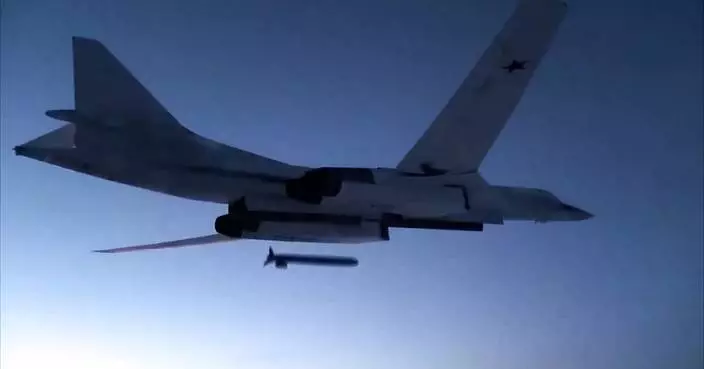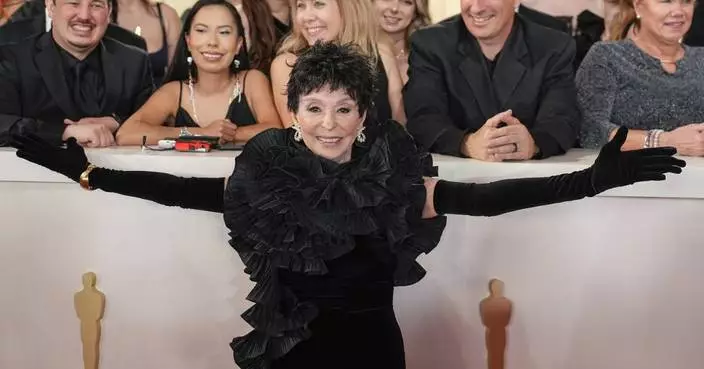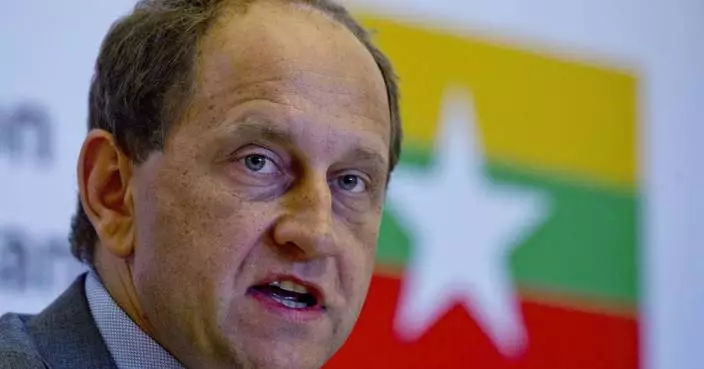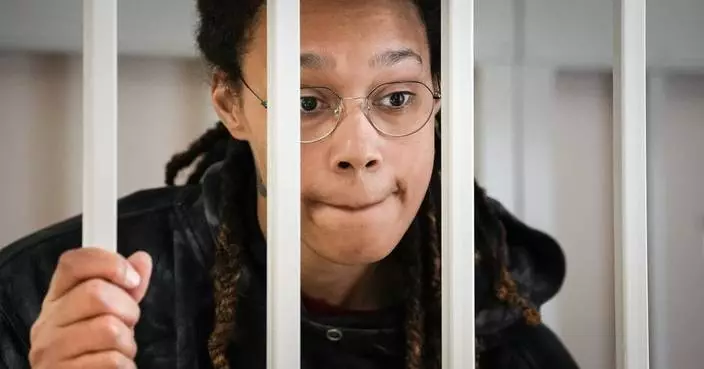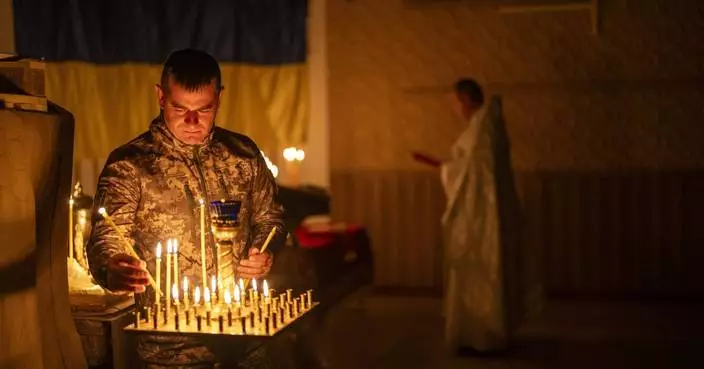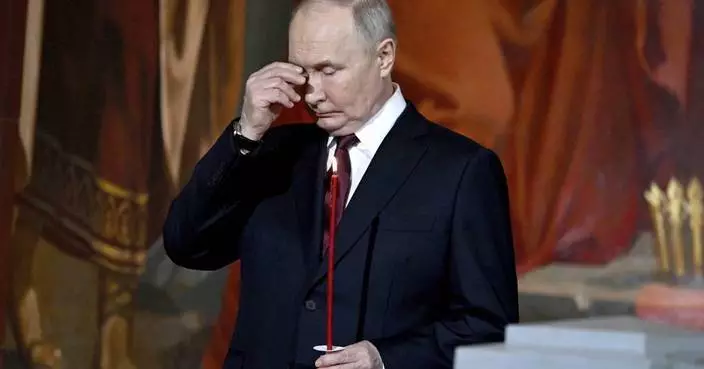Six decades after Sputnik, a refined version of the rocket that put the first artificial satellite in orbit remains the mainstay of Russia's space program — a stunning tribute to the country's technological prowess, but also a sign it has failed to build upon its achievements.
And unlike the Cold War era, when space was a key area of the rivalry between the United States and the Soviet Union, space research now appears to rank low on the Kremlin's priorities.
Click to Gallery
Six decades after Sputnik, a refined version of the rocket that put the first artificial satellite in orbit remains the mainstay of Russia's space program — a stunning tribute to the country's technological prowess, but also a sign it has failed to build upon its achievements.
The Soyuz booster, currently the only vehicle that launches crews to the International Space Station, is a modification of the R-7 rocket that put Sputnik in orbit on Oct. 4, 1957.
Clients have increasingly opted for new, more efficient and affordable choices, such as the Falcon 9 built by SpaceX, which broke ground in reducing costs by making its rockets reusable.
The first tests of the Angara have been successful, but full-scale production is yet to be organized at a plant in the Siberian city of Omsk.
Amid funding shortages, Roscosmos has decided to cut the size of its ISS crews from three to two, a move criticized by many in Russia.
Amid massive spending on Vostochny, whose future remains unclear, some have criticized Roscosmos for cutting corners on personnel. Cosmonaut Maxim Surayev, who now serves as a lawmaker, lamented the poor conditions for future space crews at the Star City training center outside Moscow.
FILE -In this file photo taken on Tuesday, Sept. 12, 2017, The Proton-M rocket booster blasts off at the Russian leased Baikonur cosmodrome, Kazakhstan. Six decades after Sputnik opened the space era, Russia has struggled to build up on its Soviet-era space achievements and space research now ranks very low among the Kremlin's priorities. (AP Photo/Dmitri Lovetsky, File)
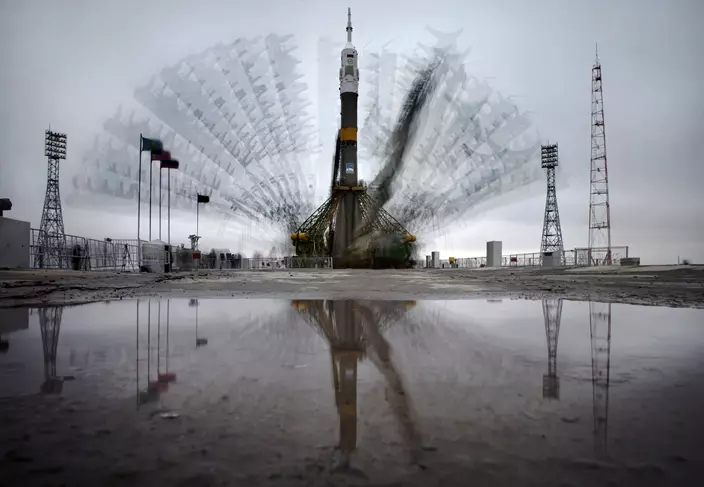
FILE In this file photo taken on Saturday, April 2, 2011, the scene as service towers lift to the Russian Soyuz TMA-21 space ship that will carry new crew to the International Space Station, ISS, at the launch pad in Russian leased Baikonur cosmodrome, Kazakhstan. Six decades after Sputnik opened the space era, Russia has struggled to build up on its Soviet-era space achievements and space research now ranks very low among the Kremlin's priorities.(AP Photo/Dmitry Lovetsky, File)
The Soyuz booster, currently the only vehicle that launches crews to the International Space Station, is a modification of the R-7 rocket that put Sputnik in orbit on Oct. 4, 1957.
Another Soviet-designed workhorse, the heavy-lift Proton rocket that has been used to launch commercial satellites to high orbits, was developed in the 1960s.
Both rockets established a stellar reputation for their reliability, but their record was tarnished by a string of failed launches in recent years that have called into question the Russian space industry's ability to maintain the same high standards of manufacturing.
Glitches found in Proton and Soyuz in 2016 were traced to manufacturing flaws at the plant in Voronezh that builds engines for both rockets. The Russian space agency, Roscosmos, sent more than 70 rocket engines back to production lines to replace faulty components, a move that resulted in a yearlong break in Proton launches.
The suspension eroded the nation's niche in the global market for commercial satellite launches. Last year, Russia for the first time fell behind both the U.S. and China in the number of launches.
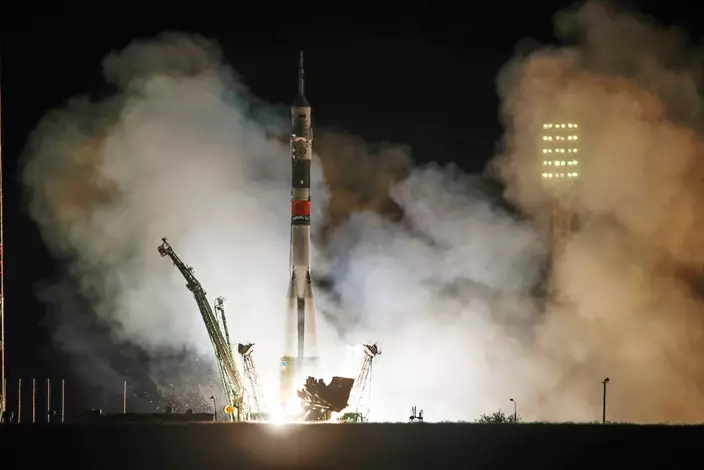
FILE- In this file photo taken on Wednesday, Sept. 13, 2017, The Soyuz-FG rocket booster with Soyuz MS-06 space ship carrying a new crew to the International Space Station, ISS, blasts off at the Russian leased Baikonur cosmodrome, Kazakhstan. Six decades after Sputnik opened the space era, Russia has struggled to build up on its Soviet-era space achievements and space research now ranks very low among the Kremlin's priorities. (AP Photo/Dmitri Lovetsky, File)
Clients have increasingly opted for new, more efficient and affordable choices, such as the Falcon 9 built by SpaceX, which broke ground in reducing costs by making its rockets reusable.
Russian officials have recognized the challenge posed by SpaceX and others, but they have offered few specifics on how the nation hopes to retain its place in the global market. The only short-term answer appears to be a plan to manufacture a less-powerful version of the Proton booster to lower costs.
In an astonishing recognition of the depth of Russia's space woes, Roscosmos chief Igor Komarov declared earlier this week that the Voronezh factory used substandard alloys because of a logistical failure that occurred after a warehouse worker had become ill.
The Khrunichev company that assembles the Proton also has fallen on hard times amid criminal investigations into alleged mismanagement and a decision to sharply cut its assets. Much of the prized real estate it occupies in western Moscow has been designated for development.
Meanwhile, the development of the Angara, a booster rocket intended to replace both the Soyuz and the Proton, has been repeatedly pushed back, and its future remains uncertain. More expensive and lacking the long-established track record of its predecessors, the Angara probably will find it hard to compete with SpaceX rockets and others in the international market.
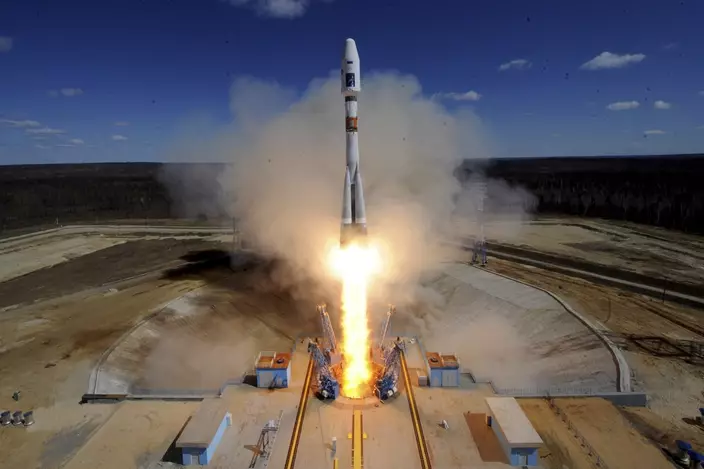
FILE- In this file photo taken on Thursday, April 28, 2016, A Russian Soyuz 2.1a rocket carrying Lomonosov, Aist-2D and SamSat-218 satellites lifts off from the launch pad at the new Vostochny Cosmodrome outside the city of Uglegorsk, about 200 kilometers (125 miles) from the city of Blagoveshchensk in the far eastern Amur region, Russia. Six decades after Sputnik opened the space era, Russia has struggled to build up on its Soviet-era space achievements and space research now ranks very low among the Kremlin's priorities. (Kirill Kudryavtsev/Pool Photo via AP, File)
The first tests of the Angara have been successful, but full-scale production is yet to be organized at a plant in the Siberian city of Omsk.
And while the Soyuz is now the only vehicle for ferrying crews to the International Space Station following the retirement of the U.S. space shuttle fleet, Russia stands to lose the monopoly soon as the SpaceX's Dragon v2 and Boeing's Starliner crew capsules are to fly test missions next year.
Work on a new spacecraft intended to replace the Soyuz crew capsule designed 50 years ago has crawled slowly. The ship, called Federation, is tentatively set for its first manned flight in 2023, but little is known about it.
Roscosmos also has talked about sending several unmanned missions to the moon in the next decade, but details are yet to be worked out. Attempts to send unmanned probes to Mars in 1996 and to the Martian moons Phobos in 2011 failed due to equipment problems.
Russia also has struggled for years to build its own scientific module for the International Space Station. Originally set for 2007, the launch of the Nauka, or Science, module has been pushed back repeatedly. A 2013 check revealed that its systems had become clogged with residue and required a costly cleaning. The launch is now tentatively set for next year, but some reports suggest it could be delayed further.
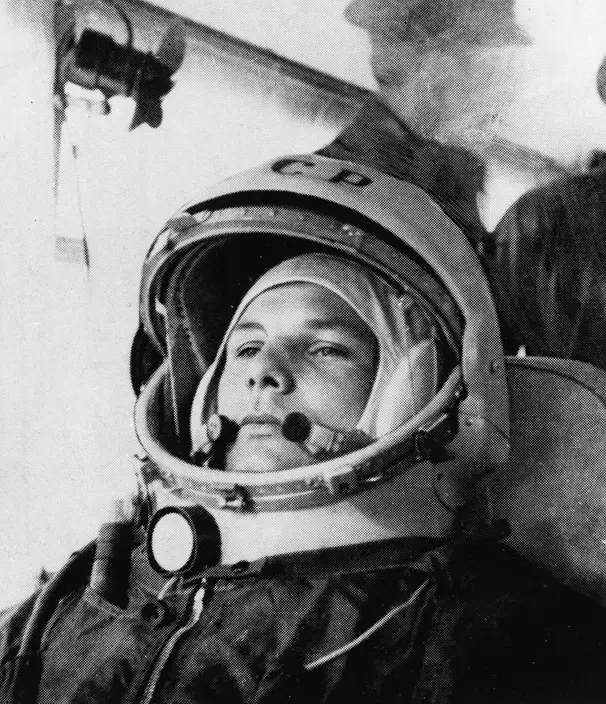
FILE - In this file undated photo, Soviet cosmonaut Major Yuri Gagarin, first man to orbit the earth, is shown in his space suit in this undated photo. On the 12th April 1961, the Russian cosmonaut became the first man in space when he orbited the Earth once during a 108 minute flight. Six decades after Sputnik opened the space era, Russia has struggled to build up on its Soviet-era space achievements and space research now ranks very low among the Kremlin's priorities. (AP Photo, File)
Amid funding shortages, Roscosmos has decided to cut the size of its ISS crews from three to two, a move criticized by many in Russia.
"It's very bad when we have to cut the number of cosmonaut seats," cosmonaut Svetlana Savitskaya said in parliament this year. "The situation in our space industry is quite alarming."
One Russian cosmonaut currently in orbit, Sergei Ryazanskiy, on Wednesday posted a picture of himself holding a tiny replica of Sputnik on Twitter to mark the 60th anniversary. Ryazanskiy's grandfather, the chief designer of radio guidance systems for space vehicles during Soviet times, was involved in Sputnik's launch.
While other space programs faced cutbacks, Russia spent billions to build the new Vostochny launch pad in the Far East as a possible alternative to the Baikonur cosmodrome in Kazakhstan that Moscow has leased from its former Soviet neighbor.
Many have questioned the feasibility of the expensive new facility, given the fact that Russia intends to continue using Baikonur for most of its launches. Work at Vostochny has also been dogged by scandals involving protests by unpaid workers and the arrests of construction officials accused of embezzlement.
A launch pad for Soyuz finally opened in 2016, but another one for heavier Angara rockets is only set to be completed in late 2021.
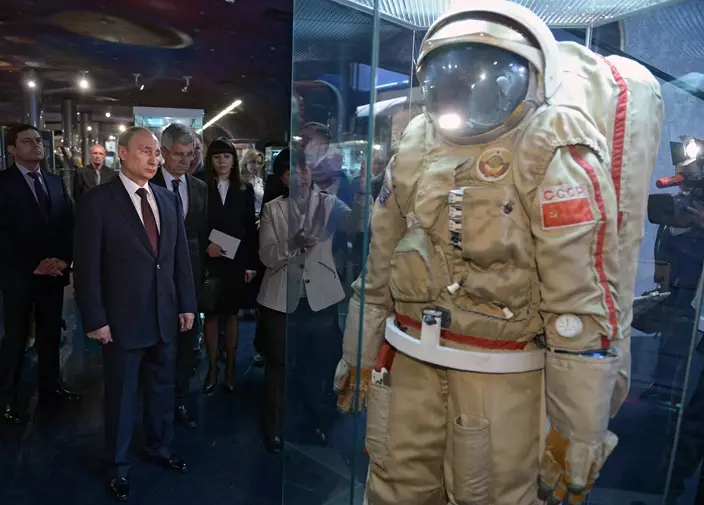
FILE - In this file photo taken on Friday, April 11, 2014, Russia's President Vladimir Putin, foreground left, looks at exhibits as he visits the Cosmonautics Memorial Museum in Moscow, Russia. Six decades after Sputnik opened the space era, Russia has struggled to build up on its Soviet-era space achievements and space research now ranks very low among the Kremlin's priorities. (Alexei Nikolsky, Sputnik, Kremlin Pool Photo via AP, File)
Amid massive spending on Vostochny, whose future remains unclear, some have criticized Roscosmos for cutting corners on personnel. Cosmonaut Maxim Surayev, who now serves as a lawmaker, lamented the poor conditions for future space crews at the Star City training center outside Moscow.
"It's wrong when, instead of fulfilling their task to prepare for space flight, they have to find side jobs and a place to live," Surayev said in parliament.
Several veteran cosmonauts were forced to retire earlier this year amid vicious infighting at Star City. One of the retirees was Gennady Padalka, who holds the world record for the longest time in orbit — 879 days over five space missions.
In a letter to the media, Padalka urged authorities to fire the director of Star City to prevent the facility from falling into "complete ruin."
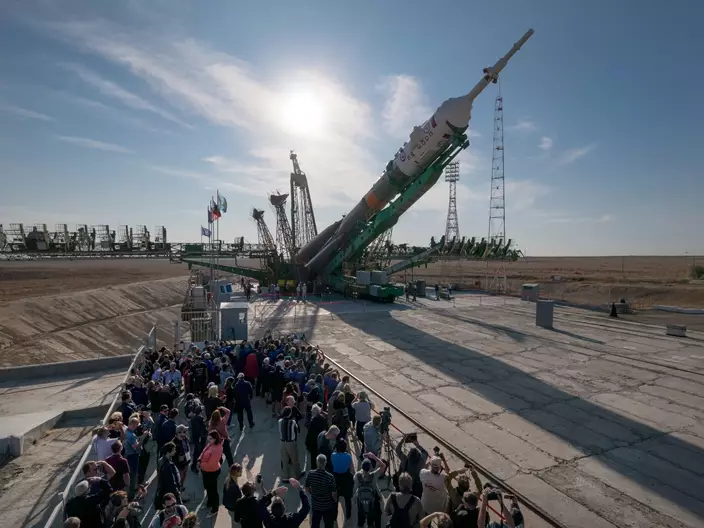
FILE- In this file photo taken on Sunday, Sept. 10, 2017, Russia's Soyuz-FG booster rocket with the Soyuz MS-06 space ship that will carry new crew to the International Space Station (ISS) being raised at the launch pad at the Russian leased Baikonur cosmodrome, Kazakhstan. Six decades after Sputnik opened the space era, Russia has struggled to build up on its Soviet-era space achievements and space research now ranks very low among the Kremlin's priorities. (AP Photo/Dmitri Lovetsky, file)
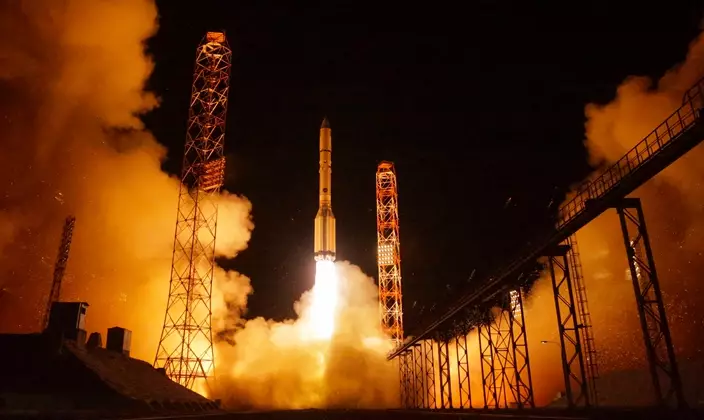
FILE -In this file photo taken on Tuesday, Sept. 12, 2017, The Proton-M rocket booster blasts off at the Russian leased Baikonur cosmodrome, Kazakhstan. Six decades after Sputnik opened the space era, Russia has struggled to build up on its Soviet-era space achievements and space research now ranks very low among the Kremlin's priorities. (AP Photo/Dmitri Lovetsky, File)
Russia said Monday it plans to hold drills simulating the use of battlefield nuclear weapons amid rising tensions following comments by senior Western officials about the possibility of deeper involvement in the war in Ukraine.
The announcement came on the eve of Russian President Vladimir Putin’s inauguration to a fifth term in office and in a week when Moscow on Thursday will celebrate Victory Day, its most important secular holiday, marking its defeat of Nazi Germany in World War II.
The drills are a response to “provocative statements and threats of certain Western officials regarding the Russian Federation,” the Defense Ministry said in a statement.
It was the first time Russia has publicly announced drills involving tactical nuclear weapons, although its strategic nuclear forces regularly hold exercises. Tactical nuclear weapons include air bombs, warheads for short-range missiles and artillery munitions and are meant for use on a battlefield. They are less powerful than the strategic weapons — massive warheads that arm intercontinental ballistic missiles and are intended to obliterate entire cities.
The Russian announcement was a warning to Ukraine’s Western allies about becoming more deeply engaged in the 2-year-old war, where the Kremlin's forces have gained an upper hand amid Ukraine's shortage of manpower and weapons. Some of Ukraine’s Western partners have previously expressed concern that the conflict could spill beyond Ukraine into a war between NATO and Russia.
French President Emmanuel Macron repeated last week that he doesn’t exclude sending troops to Ukraine, and U.K. Foreign Secretary David Cameron said Kyiv’s forces will be able to use British long-range weapons to strike targets inside Russia. Some other NATO countries providing weapons to Kyiv have balked at that possibility.
The Kremlin branded those comments as dangerous, heightening tension between Russia and NATO. The war already has placed significant strain on relations between Moscow and the West.
Kremlin spokesman Dmitry Peskov said Monday that Macron’s recent statement and other remarks by British and U.S. officials had prompted the nuclear drills.
“It’s a new round of escalation,” Peskov said, referring to what the Kremlin regarded as provocative statements. “It’s unprecedented and requires special attention and special measures.”
Russia’s Foreign Ministry summoned both the French and British ambassadors.
Sweden’s Foreign Minister Tobias Billström said the nuclear exercises “contribute to increasing instability.”
“In the current security situation, Russia’s actions may be considered particularly irresponsible and reckless,” Billström told Swedish news agency TT.
Dmitry Medvedev, the deputy head of Russia’s Security Council that's chaired by Putin, said in his typically hawkish fashion that the comments by Macron and Cameron risked pushing the nuclear-armed world toward a “global catastrophe.”
It wasn’t the first time Europe’s military support for Ukraine has prompted nuclear saber-rattling. In March 2023, after the U.K.’s decision to provide Ukraine with armor-piercing shells containing depleted uranium, Putin said he intends to deploy tactical nuclear weapons on the territory of Ukraine neighbor Belarus.
The ministry said the exercise is intended to “increase the readiness of non-strategic nuclear forces to fulfill combat tasks” and will be held on Putin’s orders. The maneuvers will involve missile units of the Southern Military District along with the air force and the navy, it said.
The Russian announcement stirred little reaction in Ukraine, where the spokesman for the Military Intelligence agency, Andrii Yusov, said on national television: “Nuclear blackmail is a usual practice of Putin’s regime; it does not constitute major news.”
Western officials have blamed Russia for threatening a wider war through provocative acts. NATO countries said last week they are deeply concerned by a campaign of hybrid activities on the military alliance’s soil, accusing Moscow of being behind them and saying they represent a security threat.
Peskov dismissed those claims as “new, unfounded accusations leveled at our country.”
Germany said Monday it recalled its ambassador to Russia for a week of consultations in Berlin following an alleged computer hack of Chancellor Olaf Scholz’s party.
Meanwhile, Ukrainian drones hit two vehicles Monday in Russia’s Belgorod region, killing six people and injuring 35 others, including two children, local authorities said. The area has been hit by Kyiv’s forces in recent months.
One of the vehicles was a minibus carrying farm workers, Belgorod Gov. Vyacheslav Gladkov said.
It was not possible to independently confirm the report.
While Ukraine’s army is largely pinned down on the 1,000-kilometer (600-mile) front line due to a shortage of troops and ammunition after more than two years of fighting, it has used its long-range firepower to hit targets deep inside Russia.
In what has largely been a war of attrition, Russia also has relied heavily on long-range missile, artillery and drones to wreak damage on Ukraine.
The Kremlin's forces kept up their bombardment of Ukraine's power grid, with a nighttime Russian drone attack targeting energy infrastructure in Ukraine’s northern region of Sumy. Multiple towns and villages in the region, including Sumy, lost power, regional authorities said.
Russia attacked Ukrainian targets with 13 Shahed drones overnight, 12 of which were intercepted in the Sumy region, Ukraine’s air force said.
Follow AP’s coverage of the war in Ukraine at https://apnews.com/hub/russia-ukraine
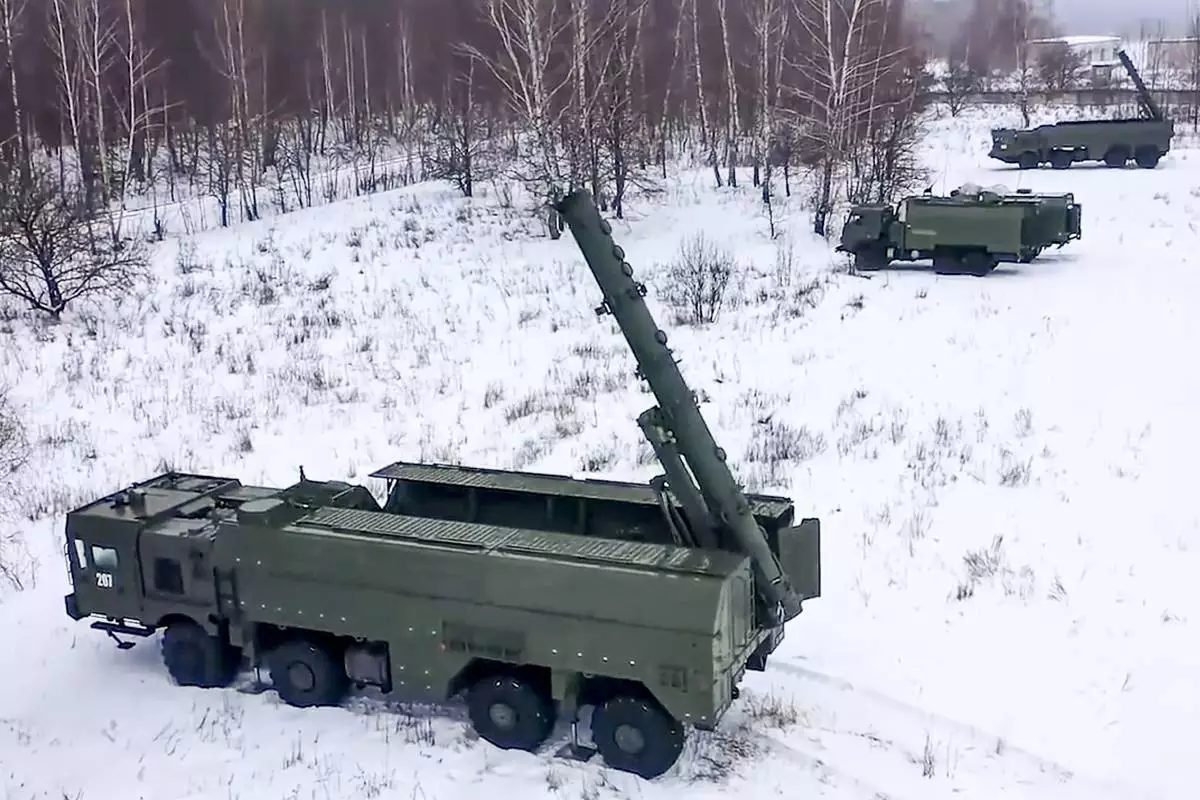
FILE - In this photo taken from video provided by the Russian Defense Ministry Press Service on Tuesday, Jan. 25, 2022, The Russian army's Iskander missile launchers take positions during drills in Russia. The Russian Defense Ministry said that the military will hold drills involving tactical nuclear weapons – the first time such exercise was publicly announced by Moscow. (Russian Defense Ministry Press Service via AP, File)
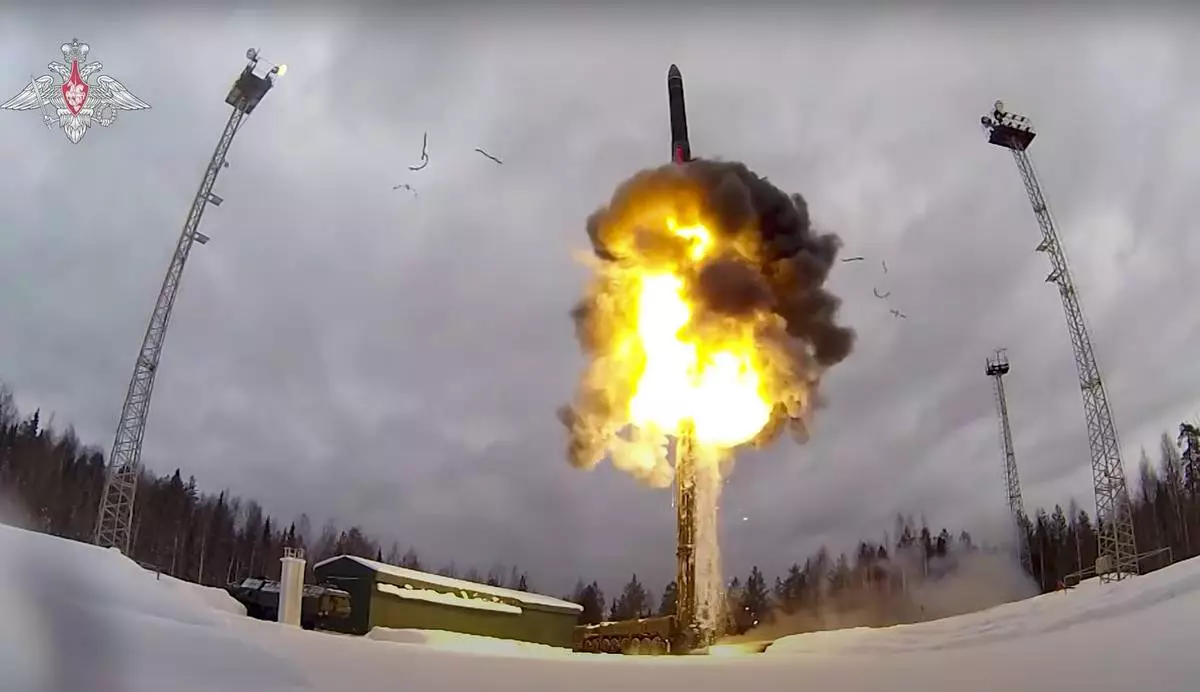
FILE - This photo taken from video provided by the Russian Defense Ministry Press Service on Feb. 19, 2022, shows a Yars intercontinental ballistic missile being launched from an air field during military drills in Russia. The Russian Defense Ministry said that the military will hold drills involving tactical nuclear weapons – the first time such exercise was publicly announced by Moscow. (Russian Defense Ministry Press Service via AP, File)
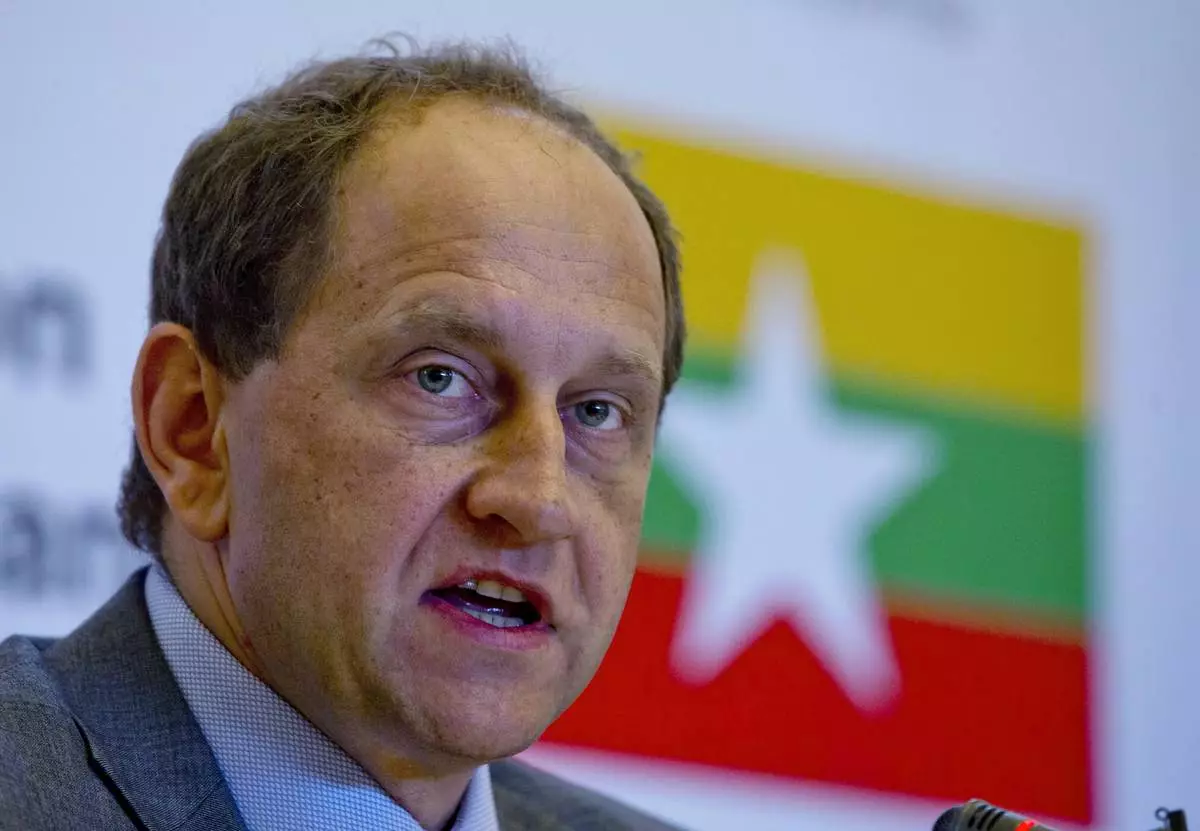
FILE - Then European Union Election Observation Mission to Myanmar chief Alexander Graf Lambsdorff speaks during a press briefing in Yangon, Myanmar, Tuesday, Nov. 10, 2015. The German foreign office says that Germany has called back its ambassador to Russia for a week of consultations, following an alleged hacker attack on Chancellor Olaf Scholz’s party. The ministry said Monday, May 6, 2024 that the government is taking the incident “serious.” (AP Photo/Gemunu Amarasinghe, File)
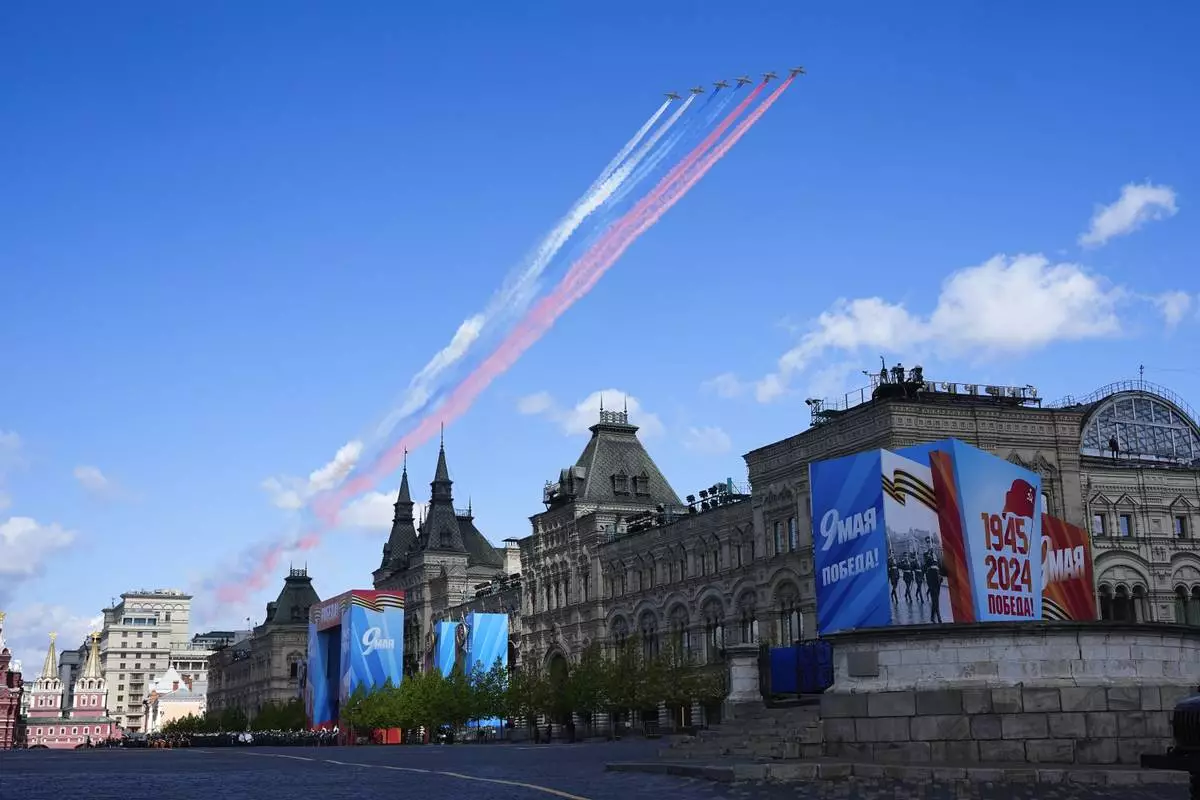
Russian military planes fly over Red Square leaving trails of smoke in colors of the national flag during the Victory Day military parade dress rehearsal at the Red Square in Moscow, Russia, Sunday, May 5, 2024. The parade will take place at Moscow's Red Square on May 9 to celebrate 79 years of the victory in WWII. (AP Photo/Alexander Zemlianichenko)
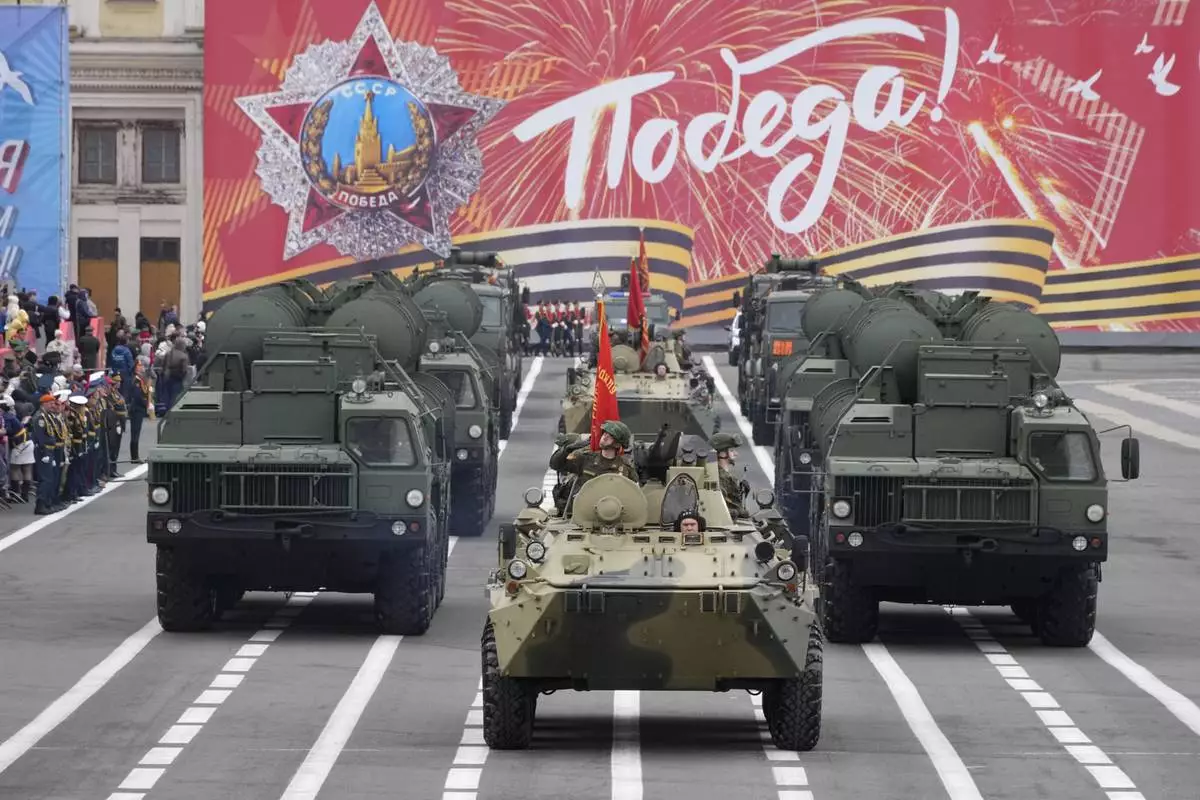
Russian S-400 anti-aircraft missile system launchers and APCs roll during a rehearsal for the Victory Day military parade at Dvortsovaya (Palace) Square in St. Petersburg, Russia, Sunday, May 5, 2024. The parade will take place at St. Petersburg's Palace Square on May 9 to celebrate 79 years since the victory in WWII. (AP Photo/Dmitri Lovetsky)
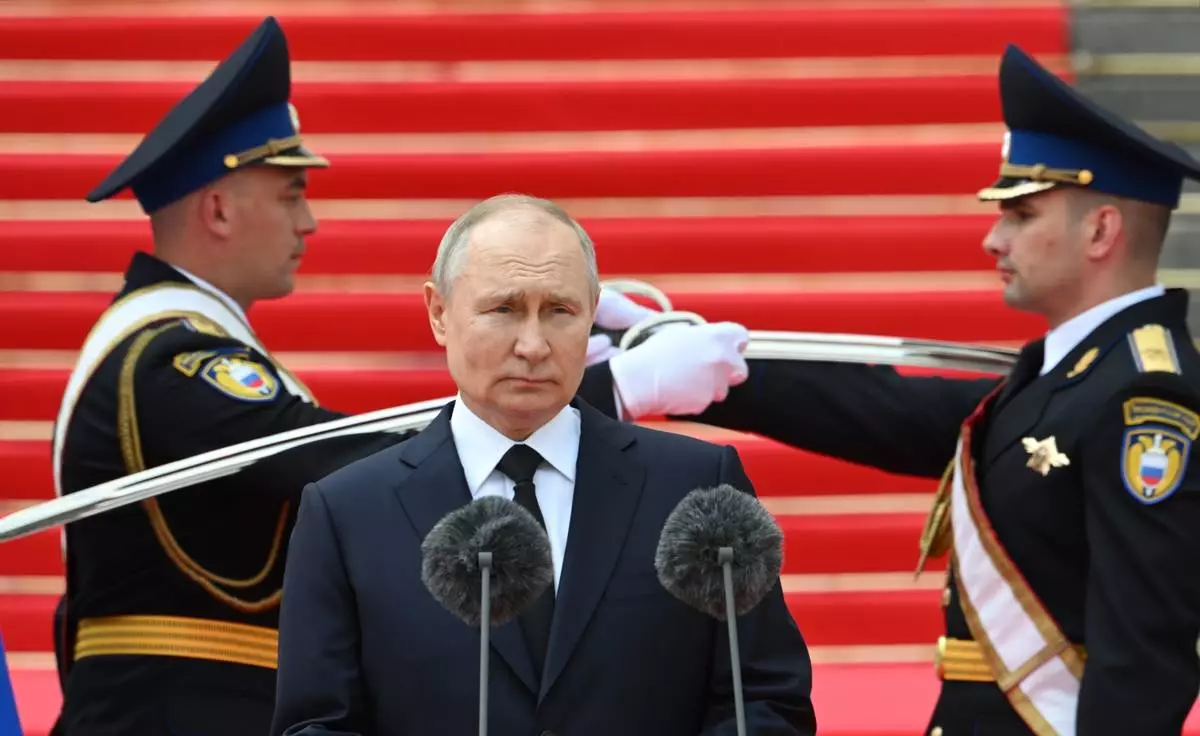
FILE - Russian President Vladimir Putin addresses members of the Defense Ministry, the National Guard, the Interior Ministry, the Federal Security Service and the Federal Guard Service at the Kremlin, in Moscow on June 27, 2023. Putin will begins his fifth term as Russian president in an opulent Kremlin inauguration on Tuesday after destroying his political opposition, launching a devastating war in Ukraine and consolidating power. (Sergei Guneyev, Sputnik, Kremlin Pool Photo via AP, File)
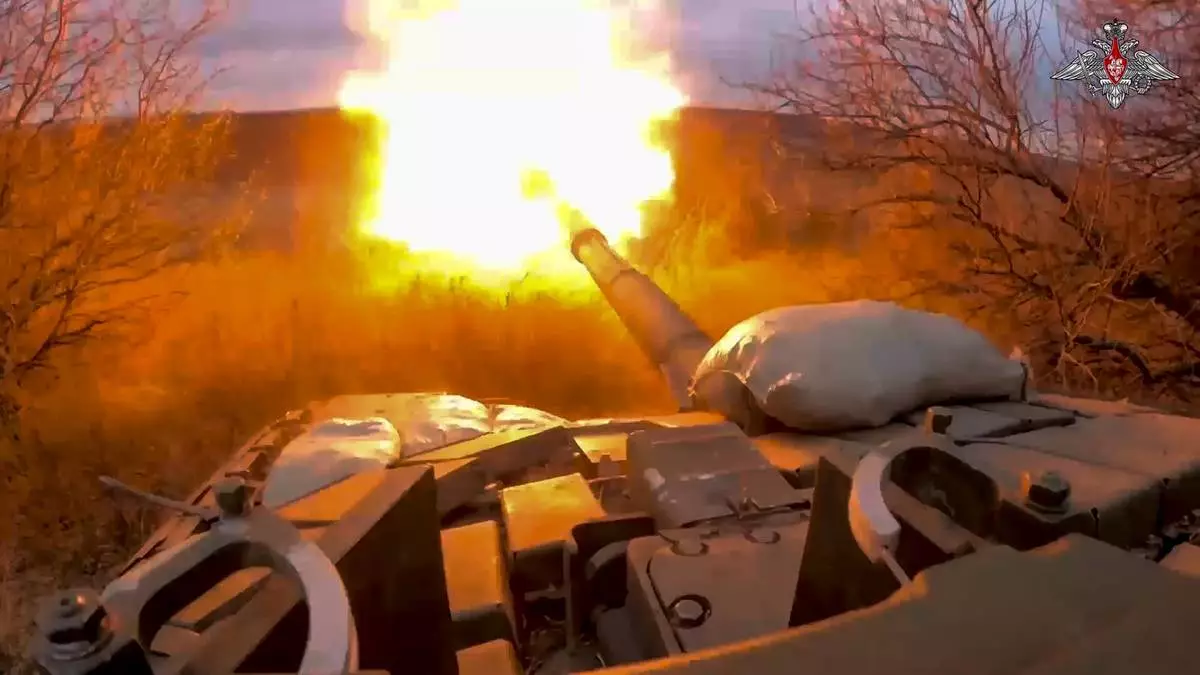
FILE - In this photo released by the Russian Defense Ministry on March 19, 2024, a Russian tank fires at Ukrainian troops from a position near the border with Ukraine in Russia’s Belgorod region. (Russian Defense Ministry Press Service via AP, File)

















